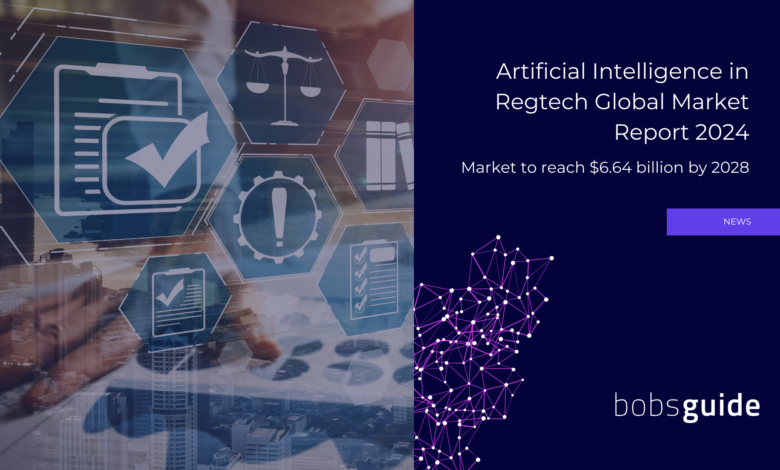Artificial Intelligence in Regtech Global Market Report 2024 – Market to reach $6.64 billion by 2028

From a valuation of $1.37 billion in 2023, the market is projected to surge to $1.89 billion in 2024, marking a compound annual growth rate (CAGR) of 37.3%.
Artificial intelligence (AI) in the regulatory technology (regtech) market has witnessed exponential growth, a trend that is expected to continue in the coming years. From a valuation of $1.37 billion in 2023, the market is projected to surge to $1.89 billion in 2024, marking a compound annual growth rate (CAGR) of 37.3%. This remarkable growth trajectory is set to persist, with forecasts predicting the market to reach $6.64 billion by 2028, at a CAGR of 36.9%. The growth is primarily driven by escalating compliance costs, the demand for automation, the explosion of data, and a heightened focus on risk management practices.
North America currently stands as the largest region in this burgeoning market, a testament to the region’s rapid adoption of AI technologies in regulatory compliance. Other regions covered in the report are Asia-Pacific, Western Europe, Eastern Europe, North America, South America, the Middle East, and Africa.
Key trends shaping the future of AI in regtech
The intersection of artificial intelligence and regulatory technology marks a transformative era for the financial industry. By leveraging cutting-edge technologies such as machine learning, natural language processing (NLP), and data analytics, AI in regtech aims to optimise data governance, risk assessment, and overall regulatory adherence within the financial sector.
Some of the key trends and technologies expected to redefine the regulatory compliance landscape in the years to come are:
- The adoption of machine learning (ML) and natural language processing (NLP) will continue to stand at the forefront, enabling more sophisticated analysis of regulatory texts and data.
- The emergence of explainable AI (XAI) is set to addresse the demand for transparency in AI-driven decisions, a critical factor for regulatory approval and trust.
- Predictive analytics will empower organisations to adopt more effective risk management strategies, prompting a shift from reactive compliance models into proactive risk management strategies.
- The increasingly growing demand for automation of compliance processes through AI technologies will remain a core issue for financial institutions worldwide seeking to streamline operations, reduce errors, and cut costs.
- The establishment of regulatory sandboxes and innovation hubs is expected to encourage collaboration between regulators and fintechs, fostering the development of new solutions.
- The escalation in fraud detection efforts is also anticipated to drive the expansion of AI in the regtech market in the forthcoming years. By harnessing advanced algorithms and machine learning techniques to scrutinise extensive datasets sourced from various channels, artificial intelligence in regtech enables organisations to proactively identify and forestall fraudulent activities.
Major market players
Leading enterprises within the artificial intelligence in regtech sector are pioneering innovative products and solutions to bolster compliance processes within the financial services industry.
Companies such as IBM Watson Financial Services, Trulioo, and Onfido are leading the charge, offering cutting-edge solutions that enhance regulatory compliance through AI technologies. For instance, IBM Watson Financial Services leverages AI to provide insights and automation in financial risk management, while Trulioo specialises in global identity verification solutions powered by machine learning. Onfido brings to the table AI-driven identity verification and authentication services, crucial for combating fraud and ensuring compliance. Other notable companies like ComplyAdvantage and Behavox Ltd. offer solutions for anti-money laundering (AML) and employee compliance monitoring, respectively.
Artificial intelligence in regtech
The application of AI technologies in regtech spans various operational models, including unsupervised and supervised learning, reinforced learning, and semi-supervised learning. These models are adept at tasks ranging from regulatory compliance and risk management to financial crime detection and identity management. As the financial landscape continues to evolve, AI in regtech emerges as a pivotal tool in navigating the complexities of regulatory compliance, ensuring that institutions remain agile and compliant in a rapidly changing environment.



